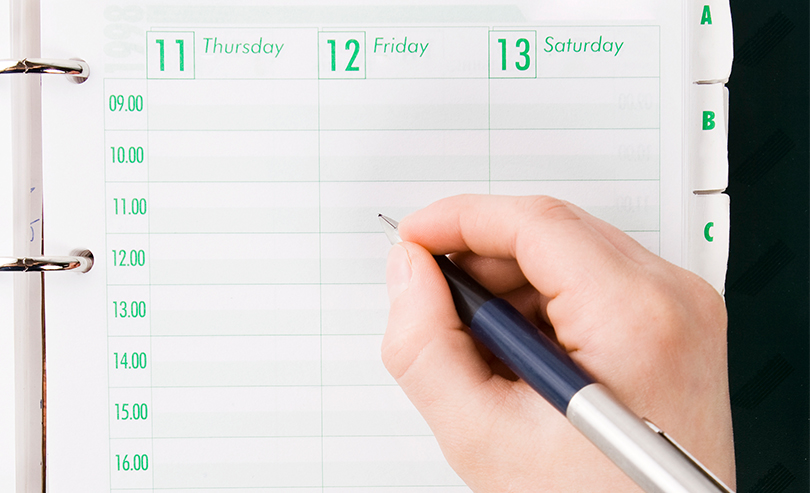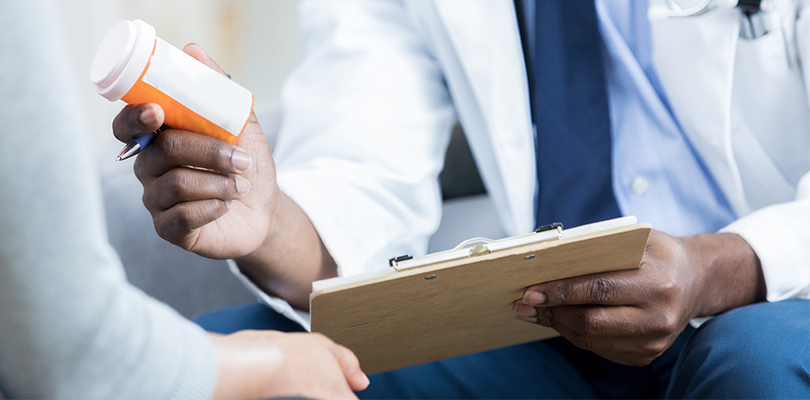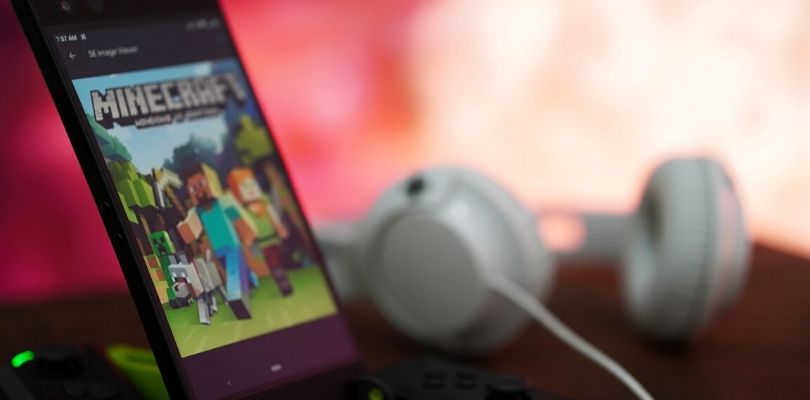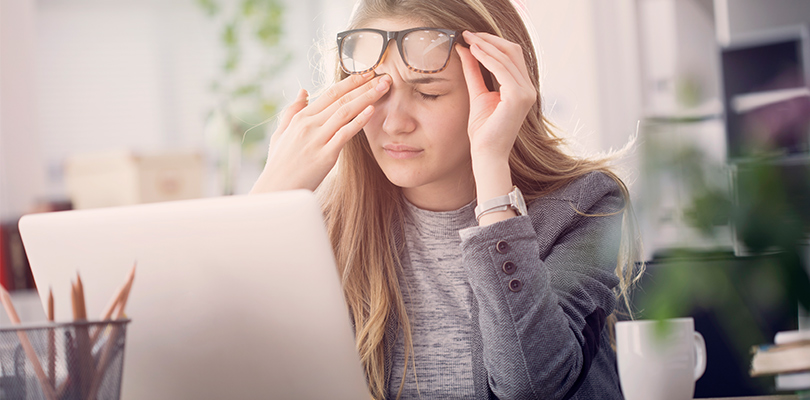
Photo Credit: Deirdre Rusk / istockphoto.com
How to Improve Attention Span
Attention is a good thing. If you can pay attention to yourself, other people and the world around you, you can stay invested and feel connected. Maintaining meaningful conversations takes high levels of attention. So does performing well at work or school. If your attention suffers, you and the important people in your life suffer as your lack of attention makes you a worse friend, employee, student, spouse and family member.
Unfortunately, many people deal with poor attention every day. The question you have to ask yourself is: what am I doing to get better at this? Too often people engage in behaviors that make their attention worse instead of better. Even with best tips, attention is something that takes a lot of work and a lot effort to reach lasting improvements. Here’s how to make your attention better than you thought it could be:
1. Find the Source of Poor Attention
Before you can find a solution, you have to accurately identify the problem. Poor attention can come from a number of sources that all require different interventions to improve. Most people think that ADHD is the source of all attention problems, but this is not necessarily the case. Issues with attention can come from any kind of stress as well as other mental health issues including depression, anxiety, trauma and types of dementia.
If you treat attention problems due to depression like you would problems related to ADHD, you are going to be met with poor results and high frustration. Depression can be distracting due to negative thoughts. Anxiety swirling around your mind will make paying attention an extreme challenge. If the source of your attention issues are unclear, consult with a professional to obtain a “big picture” view of your attention. Sometimes the symptoms only tell part of the story.
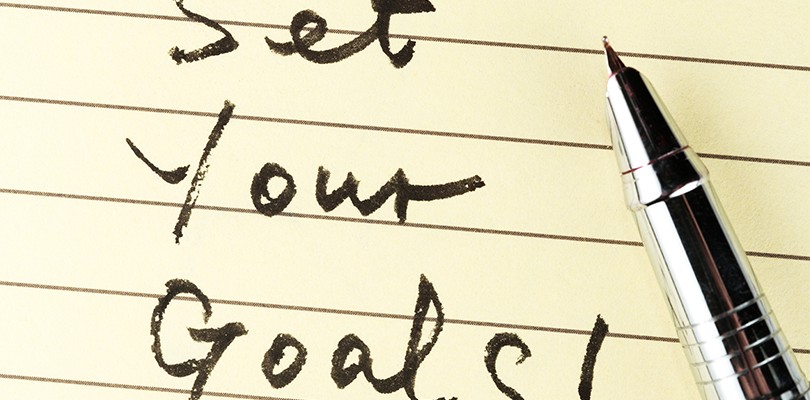
Photo Credit: raywoo / istockphoto.com
2. Be Reasonable and Practical
Improving your attention is a great goal to have, but you must be reasonable and practical when setting out. You will have poor attention at times. You will not be able to remember every piece of information people give you. You will not suddenly be able to memorize the 50 states and their capitals in under three minutes. Setting your bar too high is unrealistic, but if you feel that your attention is less than average, set a goal that is obtainable. Without a goal, you will not know if you are actually making progress or not, which defeats the purpose of improving yourself.

Photo Credit: gpointstudio / istockphoto.com
3. Improve Your Sleeping, Exercise and Diet
If you are overly tired, you cannot pay attention. If your body is in a consistently sedentary state, you cannot pay attention. If you are filling your body with foods that are lacking nutrition, you cannot pay attention. No tips, tricks or skills can make up for this fact, but if you can eat regular meals that balance your blood sugar, get plenty of rest and exercise several times a week, you can put yourself in a position to improve your attention. Your car will never win a race with no gas, old tires and no steering wheel.
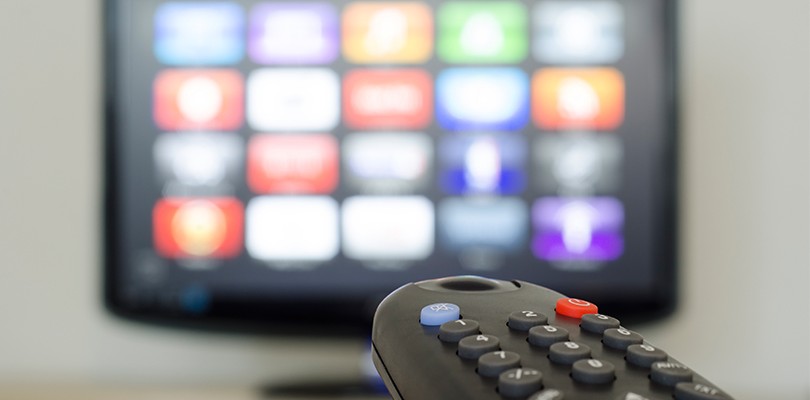
Photo Credit: opreaistock / istockphoto.com
4. Avoid the Attention-Zappers
Every day, you do things that steal away your ability to pay attention, focus and concentrate. Flipping endlessly through the channels, scrolling endlessly through your social media updates, spending hours and hours playing games like Hearthstone hoping to go pro, and multitasking all diminish your ability to pay attention. In an on-demand world, people are losing their ability to be still and silent.
If you are working to improve your attention, constant stimulation is your enemy because you begin to seek higher levels of stimulation to maintain that thrill. Let’s face it; a simple, slow paced conversation can never compete with blasting through an endless zombie stampede, clicking through the profiles of your entire high school class or feverishly tapping your touchscreen. Finding your attention stealers and limiting these activities will put you in a better position to improve your abilities.

Photo Credit: KatarzynaBialasiewicz / istockphoto.com
5. Practice Mindfulness
Mindfulness is the act of being fully aware of what you are doing, thinking and feeling at any given moment. During a period of mindfulness, you are only focused on one thing at a time and the “here and now.” You are not thinking about yesterday, tomorrow or anything other than what is in front of you. Mindfulness opens up all of your senses to give you information as you slow down your body and mind.
A great initiation to mindfulness is eating. Many people mindlessly eat on the couch while watching TV. Mindful eating would be sitting at a table while eating slowly and paying attention to the sight, smell, taste, texture and sounds of the foods you are eating. The act of peeling and eating an orange can give you practice with exploring your senses and mindfulness. From there, seek out other ways to stay present in life.
Are you considering switching to a non-stimulant ADHD medication? While they take longer to work, they can have longer lasting effects. Learn more here.
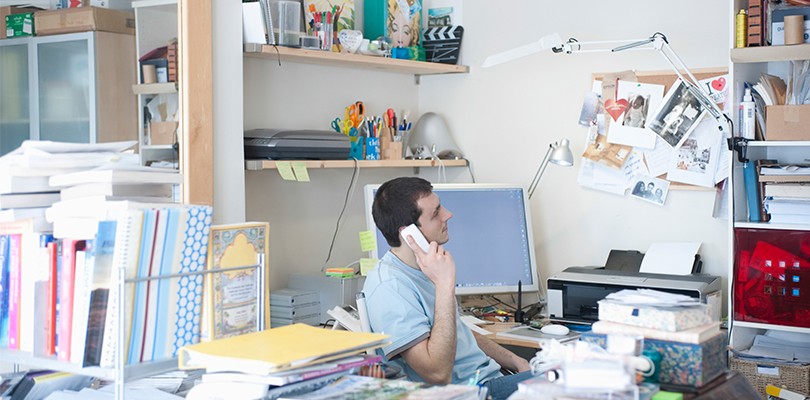
Photo Credit: IPGGutenbergUKLtd / istockphoto.com
6. Organize Your Space
Look around at your space. Is it helping or hurting your attention? If you have three TVs on, a stereo playing, your phone beeping and twelve windows open on your computer, you may find it challenging to get your work done. The stacks of papers on your desk aren’t helping matters either. Clear off your space and consolidate to help with your attention. Utilize drawers, filing cabinets and folders to give each group of information a home. Alarms, clocks and timers will be useful in keeping your focus on point. If you can limit distractions, you can set yourself up for successfully attending to the matters at hand.

Photo Credit: g-stockstudio / istockphoto.com
7. Improve Your Eye Contact
When you are distracted, you are not looking at your intended target. Normally, people will look at the person or thing they are attending to. With ADHD, your eyes may be distracted by whatever stimuli happen by. Your attention will go with your eyes so always do your best to look at the person or thing that deserves your attention. As you practice building better eye contact, you will become more aware of times that your eye contact is poor. This will help you improve your self-monitoring and get you back on track sooner.
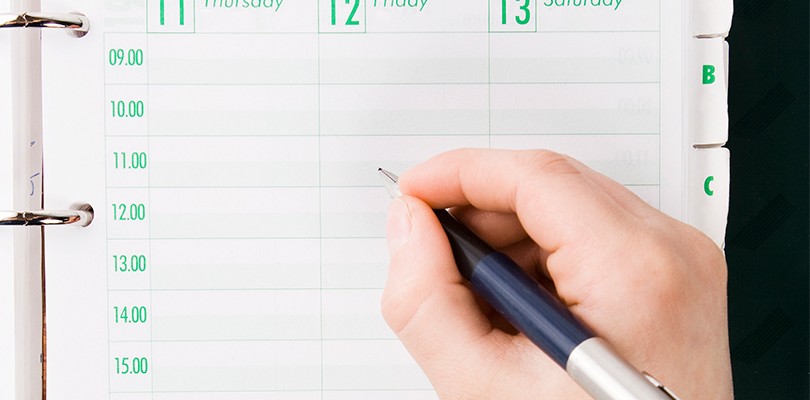
Photo Credit: Sensay / istockphoto.com
8. Build Structure and Routine
Some people have attention as a natural ability. People with ADHD need to develop it as a skill over time with patience and practice. Having structure and routine in your life enables you to develop good habits for needed activities. If you know that the sink will be full of dishes after dinner time, get in the habit of doing them then. Plan to take out the garbage every other day. Have a morning and evening routines to ensure the necessities are completed. These issues may seem small, but building these patterns really frees up mental energies that you can divert towards paying attention to issues occurring in the moment.
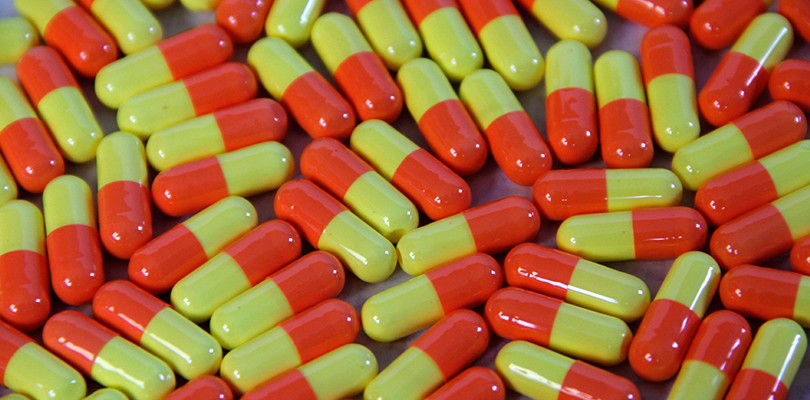
Photo Credit: AliceSkvortsova / istockphoto.com
9. Consider Prescribed Medication
If ADHD is the cause of your poor attention, medication might be the simplest and most effective option there is. A wide range of medications exist, including stimulants and nonstimulants. Wanting to go without medication is a personal choice, but consider the other forms of self-medication you currently employ. Do you load up on caffeine to boost your energy, focus and attention in the morning? Do you switch to soda in the afternoon to avoid the crash? Your self-medication can be riskier than what your doctor might prescribe. Medications can level out your attention throughout the day making these other stimulants unnecessary.

Photo Credit: kaspiic / istockphoto.com
10. Stop!
This item may sound a lot like practicing mindfulness, but it is really the act of being still. It is a forgotten art since people seem to be constantly distracted by the next post, message, selfie or other insignificant act. After you finish reading this, stop. Just stop with the list of things you think you need to do. Sit in your chair and close your eyes. No TV, no music – only silence. If this act is incredibly uncomfortable, it means that you need to try it more. Slow down. Be still. Stop!
Read more about managing ADHD and distractions over at NewLifeOutlook.
It seems that the winter blues are a justifiable fear and ADHD’s presence is constant. What can be done about this compounding combination?
